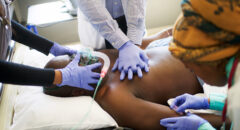
Heart failure occurs when the heart is unable to pump blood to the body adequately. Heart failure cases are not uncommon in the United States, with at least 5.8 million Americans suffering from this cardiovascular mishap.
While symptoms like dizziness, fatigue, and swelling in ankles are typically associated with heart failure, less publicized ones commonly escape doctors.
This sadly denies some patients the advantage of early detection, which could have dramatically improved their outcomes. These under-the-radar symptoms are characteristics of more severe heart failure cases.
How about I tell you some of these symptoms?
RELATED: Heart Failure Often Missed in Black Patients
1. Difficulty in understanding language
Who would readily link a difficulty in language comprehension with heart failure? But just like dizziness, language understanding challenges are symptomatic of cardiac handicaps.
The brain, being the cognitive center of the body, requires a steady supply of blood. When the brain is starved of its blood allowance – no thanks to a failing heart – it can trigger a cognitive decline in such an individual.
Along with confusion and lightheadedness, an unexplained inability to intelligently interpret syntax is symbolic of systolic heart failure.
In other cases, the patient may be unnaturally forgetful, struggling to recall even significant events. If these symptoms are maintained, the patient is advised to get a heart check urgently.
2. Impotence in men
Yes, you read that right! Deterioration in virality can be traced upstairs to the heart. While not prevalent, men with heart failure issues struggle to achieve or sustain an erection.
This is attributed to a degrading supply of blood from the genitals. Yes, this is triggered by the inability of the heart to pump blood. Such impotence can be linked to atherosclerosis.
The latter is a condition where plaque piles up in the arteries distributing blood to the genitals.
RELATED: Unexpected Physical Signs Your Heart Needs a Check-up
3. Coldness in limbs
Are your limbs – legs, feet, arms, and hands – feeling unusually chilly? If so, there could be issues with your heart.
While uncommon, such coldness in limbs happens when in an attempt to make up for the insufficiency in blood supply, the body reallocates blood supply meant for specific body parts like the hand to more critical organs like the brain.
Commonly, such reallocation of blood results in a slashed blood quota to body extremes, commonly the limbs. Now starved of the warmth derivable from their blood supply, these limbs begin to feel strangely cold and chilly.
These conditions, as said, are rare and not easily linked with heart failure. This makes it essential to request a comprehensive heart failure diagnosis when you meet your healthcare provider.
Such would unveil the type of heart condition – be it systolic heart failure or the diastolic variant – and the most suitable treatment regimen to manage the disease and reduce possible complications.
Getting an accurate heart failure diagnosis
A comprehensive heart failure diagnosis involves the doctor investigating your medical history, risk factors (for cardiovascular impairments like hypertension and coronary artery disease), and symptoms.
A physical examination often follows this. Here, the medical practitioner will keenly listen to your heart for murmurs.
Such murmurs – demonstrated in whooshing noises – often suggest heart issues. The doctor will also listen to your lungs, examining for signs of lung congestion as seen in collecting fluids.
The doctor will also weigh you and take your blood pressure. This could be followed by blood tests, and further procedures like chest x-rays, electrocardiograms, magnetic resonance imaging (MRI), and echocardiography.
RELATED: 8 Surprising Factors That Could Be Putting Your Heart At Risk
All that said, a large part of the accuracy of your heart failure diagnosis has to do with your level of openness. This is not the time to mask your vulnerabilities and appear saintly.
If you have been making lifestyle choices that could impact your heart health, be open to your doctor. If your diet has been loaded with high-fat foods, you live a sedentary life, smoke and drink a lot, be open about it.
It is also advisable to present your doctor with all medications you have been administering before the diagnosis. This includes the medications you have been administering (like OTC drugs) and the supplements and vitamins you may have taken.
Such honest disclosure further helps your doctor in determining your risks during the appointment. Your doctor is an active partner in your heart health. Keeping things from him (or her) could embellish your image but damage your heart. Which would you rather protect?









